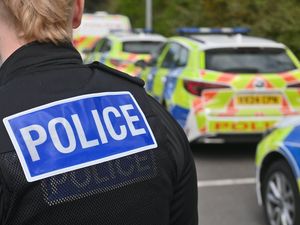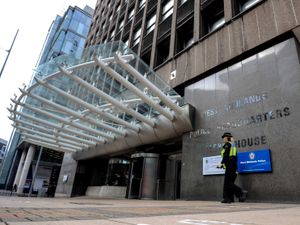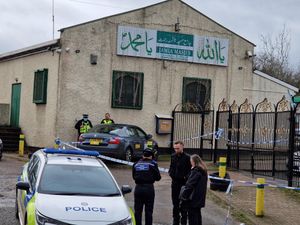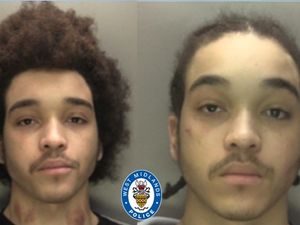More officers on streets as West Midlands Police gets cash to target anti-social behaviour
Police forces in the West Midlands will receive a share of £66 million to ramp up patrols in areas plagued by anti-social behaviour.
West Midlands Police will receive £3.7 million, with Staffordshire and West Mercia forces each getting £1 million.
The Government funding is expected to allow each of the 43 forces to launch uniformed patrols for up to an estimated 20,000 hours a year in so-called “hotspot” areas where there are high levels of violence and disorder.
The award to the West Midlands force is the largest in the country outside London.
The Metropolitan Police is being given more than £8 million, while Greater Manchester Police, Merseyside and West Yorkshire will all get more than £2 million each, the Home Office said.
The department said the cash will help “drive down crime and boost public confidence” as it announced the move.
The nationwide rollout of the plan comes after successful trials in counties including Essex and Lancashire.
There were more than 80,000 hours of patrols over six months in the 10 force areas which carried out a pilot of the scheme, leading to hundreds of arrests and cutting levels of anti-social behaviour, according to officials.
A target to shut down a further 1,000 county lines drug networks by August has also been set.
Prime Minister Rishi Sunak said anti-social behaviour “destroys communities and takes away the public’s right to feel safe in the place they call home”.
The Government’s plan to cut crime is “working”, he said but added: “We will not stop until every person, no matter where they live, can feel safe and proud of their community. That is why we are investing in every police force in England and Wales so they can tackle violence and disorder head on.”
Home Secretary James Cleverly said getting more officers out on the streets was “vital for public confidence”, adding: “Our plan will put more officers on patrol in local communities up and down the country - an approach that has been proven to work, to help ensure that people are not only safe, but that they feel safe, in their neighbourhoods.”
The announcement is the latest step in the Government’s anti-social behaviour action plan, which was launched in March last year and pledged to take a “zero-tolerance approach to all forms of anti-social behaviour”.
The news was welcomed by bodies representing police chiefs and police and crime commissioners.
Deputy Chief Constable Andy Prophet, who leads the National Police Chiefs’ Council work on anti-social behaviour, said: “Residents often tell us they want to see more uniformed officers out in their local area and this additional funding will not only help forces to enhance their current activity, but it will enable them to target their resources to hotspot areas, where criminal activity is most concentrated and areas most at risk of harm.”
Steve Turner, who leads the Association of Police and Crime Commissioners’ work on local policing, said: “The anti-social behaviour hotspot pilots have demonstrated what can be achieved by concentrating efforts on problem areas and following a zero-tolerance approach to drug taking, loitering and fly-tipping.
“Police and crime commissioners know from their engagement with communities how the public want the tackling of anti-social behaviour to be prioritised.”
Black Country areas targets by yobs
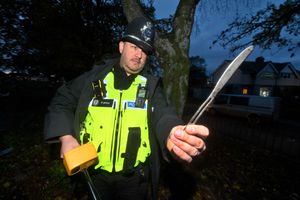
Anti-social behaviour is a way of life for many in the Black Country.
For many, after dark hours can be a nightmare as groups wreak havoc.
The region has experienced buses being attacked by stone-throwing yobs.
And there have been many cases in which tensions between rival gangs spill over and end in tragedy, with a number of high profile stabbings where the victims are barely out of school.
The borough of Walsall is a particular focus for anti-social behaviour. A public meeting was held last month in Blakenall after a spate of recent incidents.
Blakenall, with and parts of nearby Bloxwich, was named as one of the UK’s roughest estates last year. Politicians, members of the community, West Midlands Police and National Express West Midlands representatives all attended a closed-door meeting to discuss an urgent solution.
It came after a bus route was suspended at night because it was becoming too dangerous to run. Bricks have been thrown at buses as a nightly routine. A riot on Halloween led to a police car being written off and there is daily vandalism to property and vehicles.
Councillor Garry Perry, the ward representative for Pelsall, led the meeting discuss courses of action and plan for the future of the ward, as well as options to help tackle the worst of the anti-social behaviour.
Speaking at the time of the meeting, Councillor Perry said: “Residents have been and are victims in the mindless actions of a few young people in the area. There is clearly a big will between the partners to ensure that we do something and that we focus on the positives and not just the negatives.”
One resident of the estate, who spoke through a window as she was too scared to open her door, said she never leaves the house alone now. She said: “I’ve had kids jump over the back of the fences to get away from police. It’s really bad around here.
Of course the issue isn’t restricted to one part of the Black Country. It is widespread, and it thrives when police presence diminishes.
In Wolverhampton, people are being encouraged to have their say about proposals to introduce a ‘Public Space Protection Order’ (PSPO) to help tackle anti-social behaviour. The order would give police powers to ask groups of three or more people to vacate the area if there is reason to believe they are causing or likely to cause a nuisance, threat or alarm to others, and to remove face coverings if they have “no reasonable grounds” to wear them.

